By Paul Vartan Sookiasian
While Armenia’s growing media industry is mostly free, it is coming of age in an era of disinformation. A conference held this week by The Armenia Project (TAP) explored whether the country can develop independent mechanisms for self-regulation to foster journalistic integrity and address the challenges that disinformation poses. TAP is an educational non-profit which aims to advance the country’s communications ecosystem,
Armenia has been exploring self-regulation initiatives since 2007 with a press council that developed a Code of Ethical Principles supported by 85 media outlets. The council develops policies and expert opinions on media complaints, but is still at an experimental level. The Armenian parliament is now working on draft amendments to the Media Law that will give it an official status.
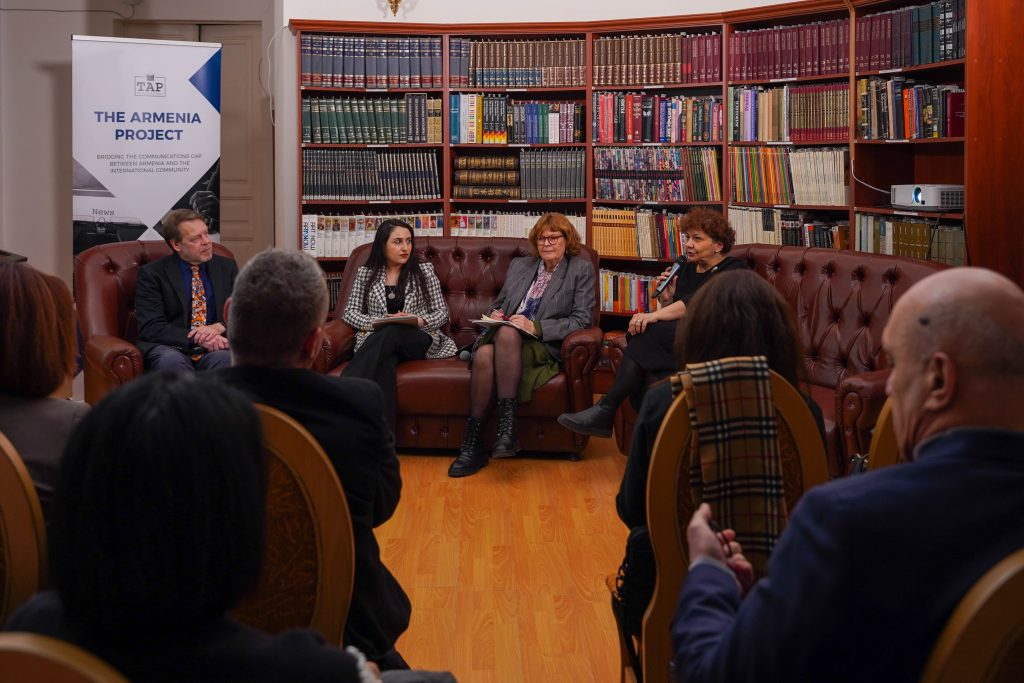
According to Marietta Mnatsakanyan, Legal-Expert at Center for Legislation Development Foundation of the Ministry of Justice of Armenia, the state is not trying to be involved in the self-regulation system but trying to create a framework for media self-regulation recognition. She says the amendments are still under discussion and open to improvement, with the intention of developing a fully independent media council with an independent structure.
At the conference, Susan McKay, the Irish Press Ombudsperson, described the advantage of press councils as an alternative to the expensive route of settling disputes in court. In her opinion, the Irish press council’s code of principles are similar to those set out by Armenia, but more stripped back. It is small and straightforward, based on simple ideas like truth and accuracy, fairness, and distinguishing truth from comment, that are left to the ombudsperson to interpret.
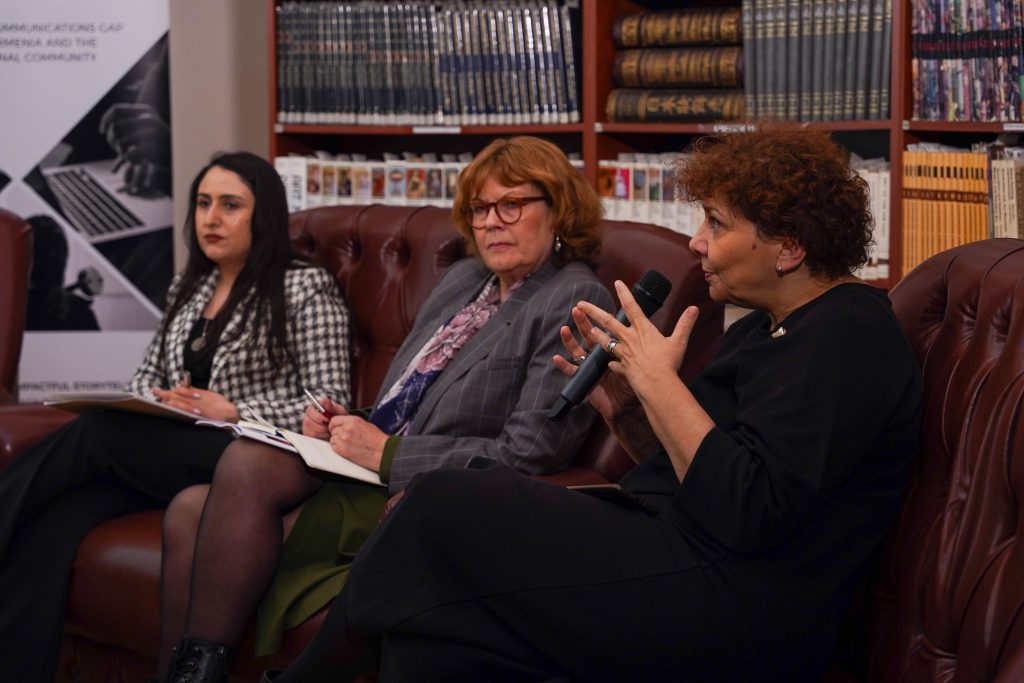
Nouneh Sarkissian, Managing Director at Media Initiatives Center, noted that the polarization in the Armenian media creates a number of problems for self-regulation. Some media outlets don’t want to discuss the draft law at all because they think it is a possible way for the government to influence them, but she believes the participation of NGOs in the process and the openness for all to join shows otherwise. She says the system must be participatory but voluntary, where no media should have their rights violated.
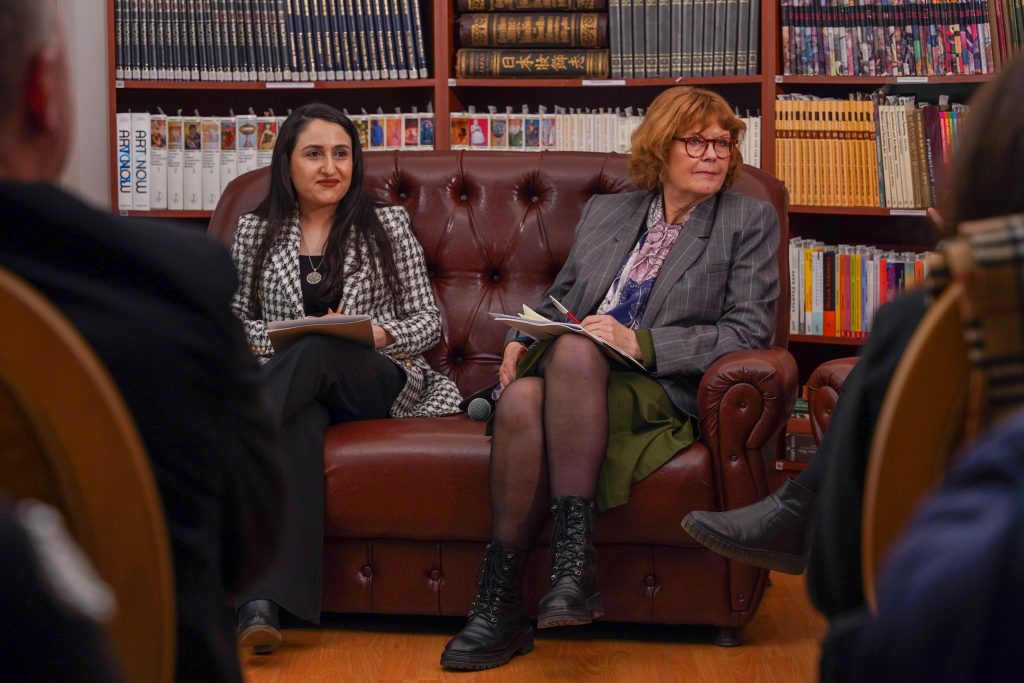
The discussion then turned to the global problem of trying to create trust and standards in an era of disinformation that, as moderator Dan Perry described, “rewards virality over truth, while nuanced and fact-based reporting struggles to compete for attention.”
Corina Cepoi, Chief of Party of Internews’s Media Program in Armenia, said that while there are “biased media belonging to certain powers in the country, the rising number of unmoderated social media increases the danger of disinformation.” She notes the hazard from platforms that don’t adhere to journalistic guidelines, and so while self-regulation cannot be imposed onto every content creator, it should be open for them to adhere to.
Former Executive Director of the Georgian Charter of Journalistic Ethics, Mariam Gogosashvili, pointed out that most disinformation spreads on social networks rather than in the press itself, so states must consider this in their policies for dealing with disinformation.
“Countries like Georgia and Armenia are in democratic transition, and I see how governments use any regulation against freedom of expression and freedom and speech- so self or at least co-regulation methods must be strengthened. Our main power is to build trust in the media.” she said.
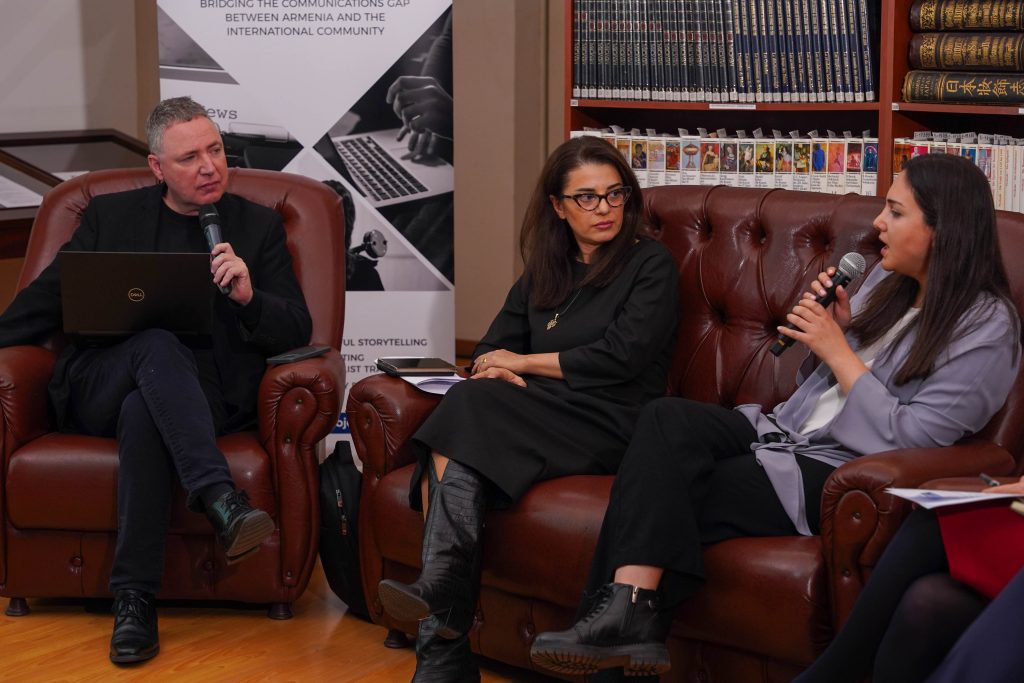
Seda Muradyan, President of the Public Journalism Club, described trauma as a hallmark of the Armenian media in recent years, and the challenges that result from it. “We have seen the defeats, killings, ethnic cleansing, and other horrific things since 2020, and these events are very often internalized by journalists because many of them feel it their duty to do so.”
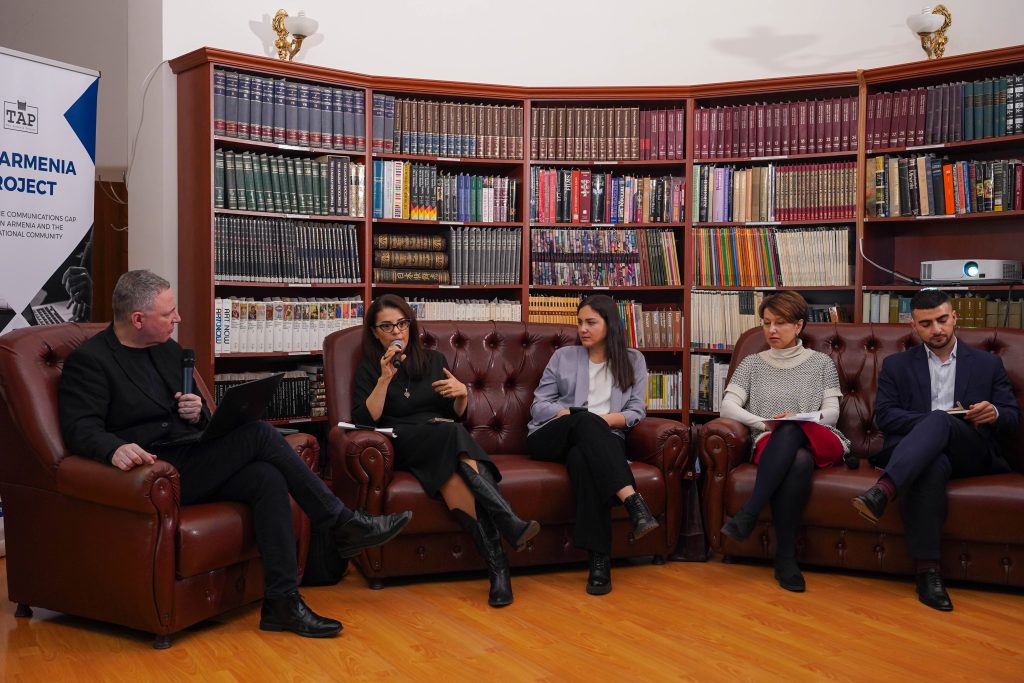
This trauma has an impact on the journalist’s professionalism along with their objectivism and fact checking, sometimes resulting in emotionally impacted content production. Muradyan aims to include mental health support mechanisms into self-regulation, though resources for it are not readily available. Meanwhile, the industry is evolving so rapidly it is very difficult to keep up. Over just the past year, AI enhanced tools in media production went from being considered unprofessional to a tool many outlets are exploring. Yet it is easily abused, and its ability to create deepfakes has already compounded the already difficult disinformation landscape.
Andranik Shirinyan, Country Representative for Freedom House in Armenia, pointed to the organization’s policy paper recommendation for a whole-of-society approach to fighting disinformation locally. He said teachers are important actors in the fighting against disinformation, especially in rural areas.
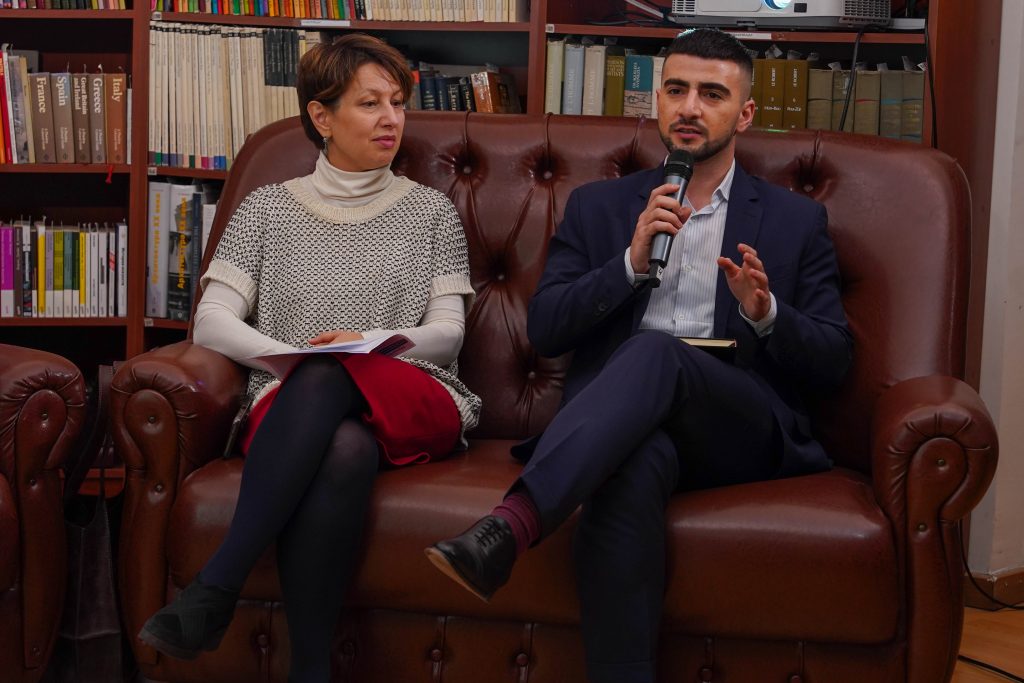
While there is no quick fix to these complicated problems, teaching media literacy is the most reliable recourse, as the public’s approach is key to whether disinformation spreads.
Through these conversations, TAP aims to create a public forum to examine the standards and practices necessary for the successful application of self-regulatory mechanisms in Armenia and explore specific strategies for combating disinformation.
“Journalistic integrity is a priority for TAP, which hosted this event to raise awareness about the Media Law amendments currently being proposed by the government,” explained Shant Petrossian, TAP’s Global Director. “TAP gathered local and international media professionals to assess the implications based on their experience and expertise to ensure the law reflects the type of media ecosystem Armenia should have as a young democracy.”
The post TAP conference explores media integrity and self-regulation in Armenia appeared first on CIVILNET.